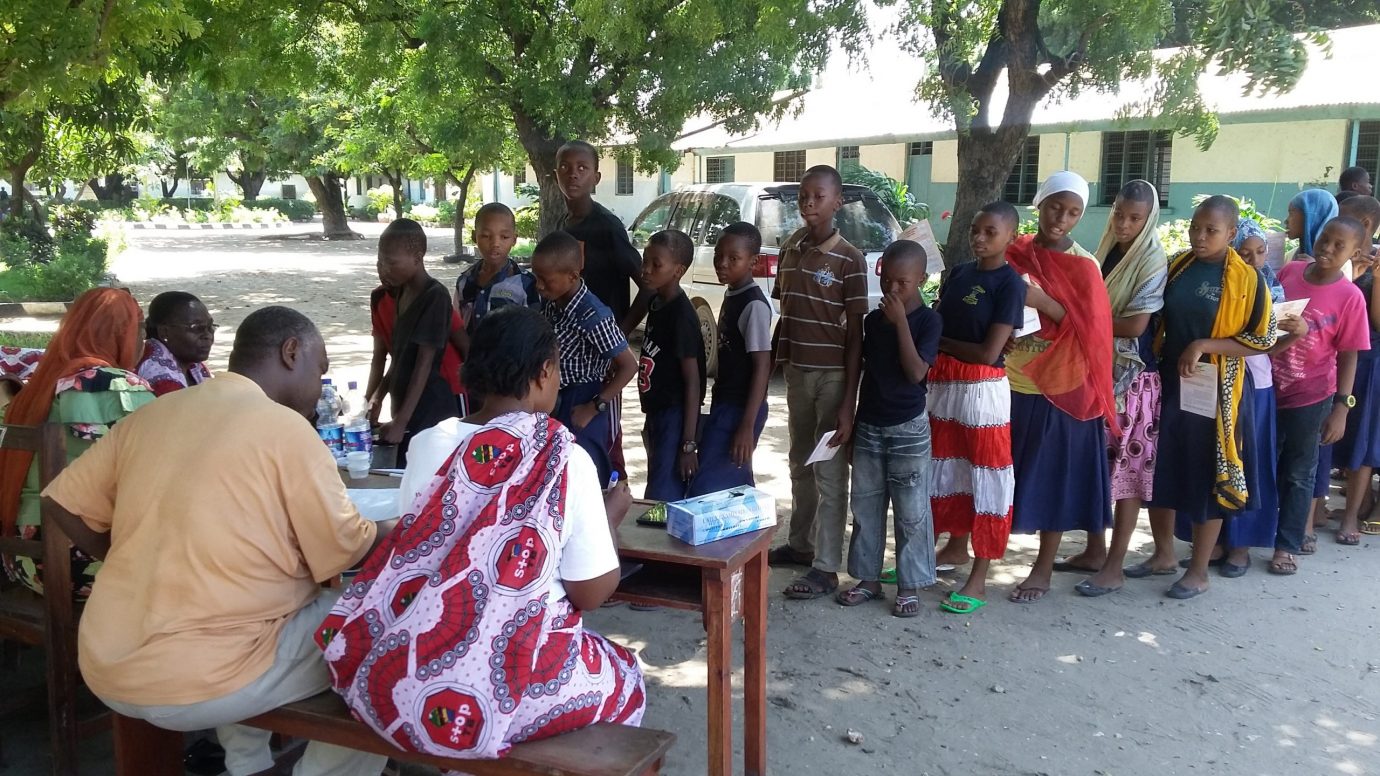The United Republic of Tanzania has a current population of 58 million people. In 2020, the World Bank declared the rise of the Tanzanian economy from low income to lower middle income country, but it still suffers from poverty with around two third of the population below the poverty line. Tanzania has a 5% urbanization rate with around one third of its population living in urban areas; however, it’s largest city, Dar es Salaam, is the second-fastest growing city worldwide.
KNCV began working with Tanzania in the 1970s with a famous scientist named Karel Styblo. He introduced a method there called directly observed short course treatment (DOTS) which was revolutionary at the time. This method was subsequently considered the gold standard of TB treatment and care for decades to come and endorsed by the World Health Organization and the World Bank as both effective and cost-effective.
However, the HIV epidemic devastated Tanzania’s progress in TB control as people living with HIV (PLHIV) are more likely to also have TB, especially when they did not have access to anti-retroviral HIV treatment and preventive TB treatment. KNCV supports Tanzania to introduce efforts to control TB within these circumstances including improved diagnostics and improved people-centered TB care (including TB/HIV and drug-resistant care). And, TB rates are consistently going down. Still, currently, TB rates in Tanzania are estimated to be at 253 cases per 100,000 people (50 times higher than in The Netherlands). Around 38,000 people die each year from TB including 16,000 PLHIV. Tanzania also has a very high burden of HIV and malaria but also periodic cholera outbreaks, leprosy hotspots, food-borne & water-borne pathogens, as well as other neglected tropical diseases.
The KNCV-led, USAID-funded Challenge TB project (2014-2019) has provided several years key technical assistance to develop and implement a state-of-the-art electronic TB surveillance systems (eLMIS) that will help the national authorities to better track TB patients countrywide and more accurately report TB statistics. Through the significant support provided by KNCV, the TB Reference Laboratory, which supports the entire TB laboratory network, has advanced to the point that it can apply for international accreditation to A Supranational level from the SADCAS (Southern African Development Community Accreditation Services).
IMPAACT4TB, which is implemented by KNCV in Tanzania, is a four-year project introducing a new way to tackle latent Tuberculosis (TB) infection—the seedbed of TB—in order to slow and ultimately stop the flood of new TB cases occurring every year. We’re doing this by identifying and providing new, shorter treatment options for people with latent TB infection. The project will prioritize short-course TB preventive therapy for people living with HIV and children under five, and subsequently all those in close contact with TB patients in 12 high-burden countries—who represent 50 percent of the global TB burden
Since 2018, KNCV has rolled-out DAT demonstration projects in three countries – Philippines, Tanzania and Ukraine-, funded by the Stop TB Partnership, TB REACH. The goal of these demonstration project is to assess the feasibility, acceptability by patients and health care providers, and the accuracy of digital adherence technologies. In addition, the project will assess the overall impact of DATs on treatment outcomes and general adherence behavior. As part of the project, KNCV will determine the necessary adaptations needed to make DATs suitable for a variety of contexts, including how to incorporate patient-centered mechanisms, and steps to scale-up and sustain these innovative approaches.
The ASCENT (Adherence Support Coalition to End TB) project (July 2019 – Dec 2022) builds on existing evidence, innovations in adherence technology and growing global momentum to implement integrated DAT interventions in five key countries (Ethiopia, the Philippines, South Africa, Tanzania, and Ukraine) for all types of TB (DS-TB, DR-TB, LTBI).

